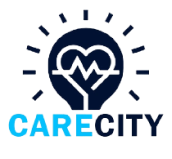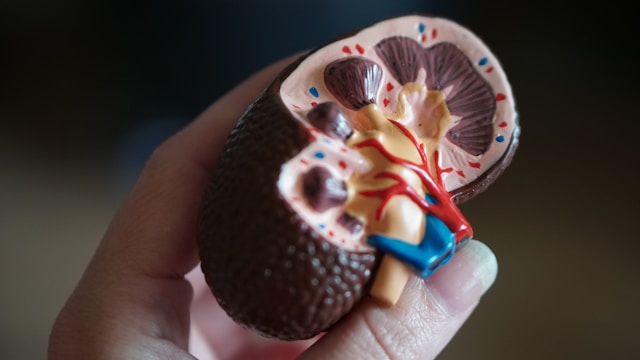The World Health Organization (WHO) stated in 2020 that the world needs an additional 6 million nurses annually.
Without a doubt, one of the most exciting times in your nursing education and training is when you are graduating and putting together your first resume or CV to land your first job.
It’s a chance to highlight your hard work.
But what is the best way to do that with your resume?
The key is to highlight the skills employers seek when hiring new nurses.
This article will uncover the top 10 clinical skills fresh graduate nurses must master. It also includes tips on featuring some of these skills in your resume to enable you to land your first job.
Hard vs. Soft Nursing Skills
Understanding the difference between hard and soft skills is essential for creating a standout resume. By showcasing a combination of both, you position yourself as a well-rounded candidate to potential employers.
Hard Skills are the specific, measurable abilities you have, like riding a bike or reading. In nursing, you learn hard skills during your education, like assessing patients, administering medications, and other core clinical nursing skills.
Adding these hard skills to your resume tells employers you have mastered core nursing competencies, making you a stronger candidate.
On the other hand, soft skills are immeasurable, quality-based abilities, such as patience, communication, staying calm under pressure, or compassion.
Emphasizing soft skills on your nursing resume helps to complement the technical skills required for the job.
Healthcare employers can, therefore, see how capable you are of providing compassionate care, effectively collaborating with healthcare teams, and navigating challenging situations with professionalism and empathy.
5 Must-have Hard Skills For Nurses
Employers check resumes to see if candidates have the right technical skills.
Here are five vital hard skills nurses should have:
1. Patient Assessment
As a nurse, it is crucial to know how to monitor vital signs such as heart rate, respiration, saturation, blood pressure, temperature, and other physiological parameters.
These signs help assess a patient’s condition, track treatment progress, and make critical decisions.
Prospective employers want to see your ability to accurately assess symptoms, take patient histories, prioritize concerns, and evaluate the severity of illnesses.
How to show it: It’s helpful to use numbers and specific accomplishments. For instance, you could say, “I monitored the vital signs of ten patients in the orthopaedic surgical unit,” or “I carried out physical assessments of patients in the outpatient department.”
This makes it easier for others to understand your experience and skills.
2. Basic (and urgent) Care
As a fresh nurse, you should mention your efficiency in procedures like dressing wounds, inserting catheters, IV line placement, and CPR, especially in urgent or emergency care settings.
You should also include how many patients you can help per shift.
How to show it: Quantify your professional experience, including internship roles. You can also comment on the number of patients you treated at any given time, such as “Provided basic care for 20 patients in the outpatient ward.”
3. Patient Safety and Infection Control
Patient safety is a big deal in healthcare.
Hospitals and healthcare organizations do not want patients sustaining injuries or exposed to a biohazard during a hospital stay.
Your resume should emphasize understanding fall risk protocols and safety measures to prevent patient injury.
Additionally, highlight your understanding of various infection prevention and control measures that ensure the safety of both patients and healthcare workers.
How to show it? List specific training, workshops or medical outreaches you have attended in your resume.
You can also mention a particular (unique) skill set gained in patient safety.
4. Medication Management
One of the key responsibilities of nurses is drug administration.
You should emphasize your experience in pharmacology, which includes administering medications and understanding the effects of major medications (pharmacodynamics and pharmacokinetics).
How to show it? Highlighting your experience in pharmacology in a resume could be challenging. Instead, you can give details of the medications you’re familiar with, e.g. “I administered intravenous antibiotics to patients in the medical wards, watched for reactions and ensured patients were safe afterwards.”
5. Embracing Innovation and technology
Technology has become an integral part of healthcare practice and delivery. Recruiters are impressed when candidates demonstrate an understanding of most hospital equipment.
How to show it? If you have experience with portable monitors, automated IV pumps, wearable devices, electronic health records (EHR), telehealth and any accompanying apps, ensure you mention them in the skills section or a line on your work experience. You can say, “I used automated IV pumps in the delivery of intravenous medications to patients in the surgical unit.”
5 Must-Have Soft Skills for Nurses
Here are 5 soft skills every fresh graduating nurse should have:
1. Good Communication Skills
Nurses are front-line caregivers and professionals working closely with patients and their families.
They serve as an essential link between members of the healthcare team.
You are your patients’ go-to resource for information when they have questions.
On your resume, highlight your verbal communication skills and patient interaction skills.
2. Attention to Details
Nurses are entrusted with patient care, necessitating meticulous attention to detail to prevent medical errors.
Their responsibility encompasses accurate documentation of patient status, monitoring progress, and maintaining up-to-date records.
Additionally, nurses must attentively listen to patients, noting symptoms and conditions, and ensure precise medication administration.
Hence, prioritizing detail-oriented skills is crucial to your resume.
3. Adaptability
Nurses face unpredictable work environments, which demand they adjust priorities, schedules, and responsibilities quickly.
They manage multiple patients on rotation, necessitating rapid adaptation to new needs.
Due to long hours and unpredictable schedules, flexibility is crucial.
Valuable adaptability skills include quick adjustment, multitasking, and a willingness to learn.
4. Teamwork
Do not be a lone wolf.
Teamwork is the pillar of nursing care. Teamwork involves communication, respect for expertise, and collaboration with other healthcare professionals.
Nurses work alongside doctors, therapists, and other healthcare professionals to achieve common goals and ensure good care outcomes.
5. Decisiveness And Critical thinking
Critical thinking is crucial in daily patient care. As you care for patients, you will make many decisions every day.
These decisions depend on what you have learned in training, what you know about the patient, and what you feel is best for them.
Your decisions must prioritize patient well-being and emphasize prompt and confident choices for optimal care delivery.
Final Thoughts
In conclusion, as a fresh graduate nurse, mastering hard and soft skills is essential for successfully landing your first job.
Highlighting your skills in patient assessment, basic and urgent care, patient safety and infection control, medication management, and embracing innovation and technology will make you a strong candidate.
By emphasizing your clinical skills and demonstrating your ability to provide compassionate care and work effectively in a healthcare team, you can stand out to potential employers and kick-start your nursing career on the right foot.




Drop Your Comment